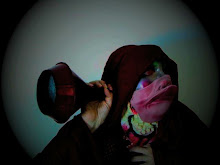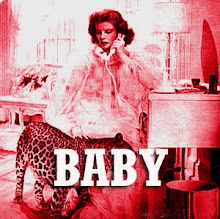'...Language hurts. Language is not about being smart, because language smarts. It smarts because when it is used — as opposed to quotated in between the heavy sixty-six and ninety-nines of the Iowa series, or the ceaseless flows of message-board workshops (password protected and anonymous so that their users can dream of one day claimed to have fallen, whole, of Zeus's skull) — when it is used it is a genuine contact with an alien world. Here is Mei-Mei Berssenbrugge, who understands this well, who thinks as a human being with a death-date measured out:
He calls it their stage, which echoes our first misrecognition of unity. Instances
of false unity, he calls the imaginary, and he locates in them sites of her dreams,
out of which she is able to want him.
("The Swan", I Love Artists)
There is a response to this: the response is that I demand a poetry of action (a — god forbid — écruiture masculine) but that there is room for a poetry of contemplation, a poetry of the intellect.
The antistrophe — as an intellect employed — is that thinking hurts just as much as love. It hurts because thinking is the only release from the animal condition of death, and no immortality is cheap. The kind of thinking in one of Swensen's pieces — in contrast to Carson's insane essays and epic poems — is ersatz, what in the philosophical literature is referred to as a zombie-thought: stripped of any phenomenology, of any qualia, of any what it's like to think.
This is not the cooked versus the raw: this is the edible versus the Denny's menu photograph. You don't have to kill and eat your food for it to sustain: as Lisa Fishman's new book, The Happiness Experiment makes clear, you can create a living world with the quiet words and syntaxes just as well as with the splatterings of Juliana Spahr:
Then find the accounts of the body
in Anais Nin's two volumes
One for pleasure, one for sorrow
Then sing for your supper down among the willows
weaing many buttons
on your two white blouses ("Instructions/Confessions")
extract from abscent magazine Vol 2
There is such an infinite space — despite the tonal similarity — between Swensen's and Fishman's citations, between Swensen's corsets and Fishman's blouses. It is the infinite space of daring to do: daring to create. Juliana Spahr, of course, is herself a phenomenon, her writing an amplification-unto-pain of the writings of someone like Inger Christensen.
Which brings me, of course, to ecopoiesis. Not ecopoetics, the creepily violent Iron John-derivative masculinity of Gary Snyder, but ecopoiesis, the creation of life in a hostile environment. The violation of the inhospitable state of language by the introduction of the poet-as-extremophile.
extremophile — the bacteria that live the extraordinary pressures of the ocean trenches, in sulfuric acid, in the pores of mineral gems. The bacteria that one day — if the human race outlives its own violence — with which we'll bombard the surface of Mars, erasing the pristine inhospitability to build our shopping malls and hospitals on a foreign landscape....'
full view fuck you, aloha, ecopoisesis in abscent













No comments:
Post a Comment